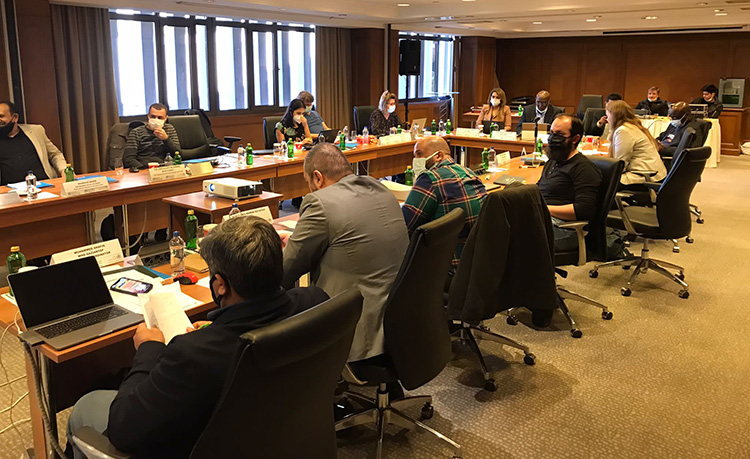
Cairo, 8 December 2021 – Nine countries and territories from the WHO Eastern Mediterranean Region met last week for a 2-day workshop in Istanbul to prevent and advance WHO response to attacks on health care in complex humanitarian emergencies.
The WHO European Centre on Preparedness for Humanitarian and Health Emergencies and the Regional Office for the Eastern Mediterranean collaborated to bring together Attacks on Health Care focal points from Afghanistan, Iraq, Libya, occupied Palestinian territory, Pakistan, Somalia, Sudan, Syria and Yemen to review progress made to date, discuss best practices, identify new areas of collaboration and document lessons learned for tackling attacks on health care.
Ensuring that health workers can provide care in a safe and protected environment without disruption from acts of violence is high on the agenda for the Region. Dr Mohamed Ali Kamil, WHO Regional Programme Area Manager for Emergency Response and Operations in the Eastern Mediterranean, said “Attacks on health care not only disrupt our operations in complex humanitarian emergencies, but also dramatically compromise communities’ access to health care.”
Countries and territories affected by complex humanitarian emergencies have too often seen their health care system undermined by attacks which cut off life-saving health services to the most vulnerable. “It is crucial that we continue to learn from each other to better inform our operations and protect health services, health workers, and patients from attacks – especially in the context of the COVID-19 response,” added Dr Samar Al-Mutawakel, WHO Regional Attacks on Health Care Focal Point for the Eastern Mediterranean.
The WHO Regional Office for the Eastern Mediterranean will continue to support and coordinate efforts to strengthen the response to attacks on health care.


